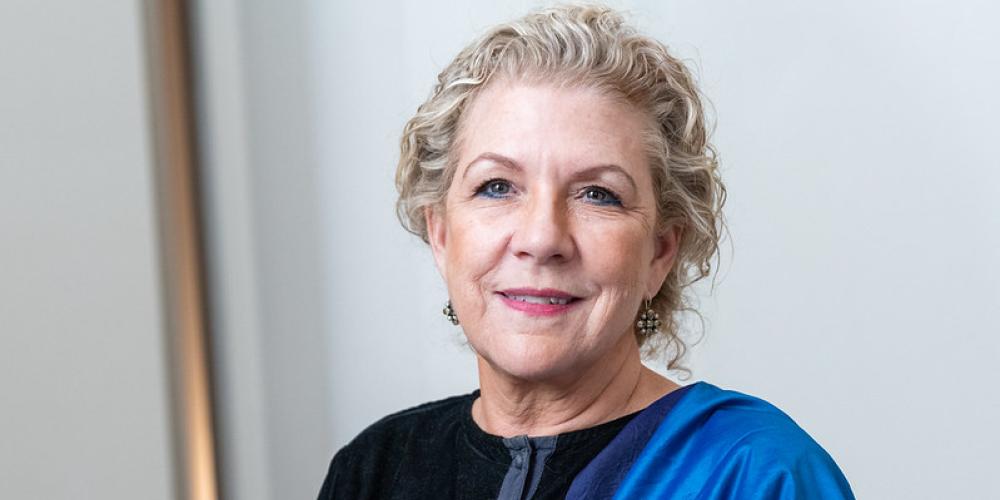
Writer Jennifer Clement received the Difference Day Honorary Title for Freedom of Expression in 2023. In 2015, she became the first female president of PEN International, and remained so for six years, until 2021. The Honorary Title honoured both Jennifer Clement's personal commitment and PEN International's unwavering commitment to freedom of expression and endangered authors. ‘Awards like this are important because they recognise that freedom of expression is the basis of all knowledge’.
3 May is Difference Day
Every year, the VUB and ULB reflect on the right to freedom of expression and freedom of the press. We do this on 3 May, World Press Freedom Day, by organising Difference Day and presenting the Difference Day Honorary Title for Freedom of Expression. The 2024 event is the 10th edition.
Jennifer Clement (born 1960) is an American-Mexican author of successful and award-winning novels (including Prayers for the Stolen) as well as non-fiction books. She has always championed women's rights, oppressed groups and freedom of expression. She lives and works in Mexico City.
What is the current state of safety of journalists and authors in the world?
At present, the world is becoming more and more dangerous for journalists and authors. This is especially true of journalists covering the destruction of the environment. As the laws to protect the planet become stricter, the danger from companies, individuals, and governments to keep their practices unknown becomes more urgent. In these times, the search for truth is becoming increasingly important, especially with repressive governments growing in power worldwide and technologies threatening our trust in the truth.
“Writers need to defend free speech and the imagination.”
What are the key issues to safeguard journalists/writers and freedom of expression from threats in the future?
The creation of secret “clouds” where journalists can safeguard their findings is becoming crucial. If the information uncovered is secured, there is less reason to kill or jail journalists. We also need more support for organizations such as Forbidden Stories with the mission "to continue and publish the work of other journalists facing threats, prison, or murder." To achieve this, it allows journalists to send their work to Forbidden Stories, so other journalists have access to the material in case the original investigator is not able to follow it anymore.
Is it a moral imperative for authors to be engaged?
Yes. In fact, as President of PEN International one of the most important actions I lead was the creations of the Democracy of the Imagination Manifesto. Writers need to defend free speech and the imagination.
Was it an upheaval for PEN to have a woman as its president?
I don’t think it was an upheaval exactly, but I created changes and programs to give women writers a greater place within PEN. These included changing the PEN Charter, creating the Women’s Manifesto (to see censorship and silencing as a form of violence) and establishing a VIDA Count in all centers. (VIDA: Women in Literary Arts is a feminist organisation striving for inclusivity in the literary landscape. n.d.r.) I also headed the opening of the first two indigenous PEN centers in Mexico and Bolivia where women writers are marginalized or silenced completely.
What do awards like Honorary Title mean to you?
It is a great honor and even more so to share this recognition with some of my heroes: Svetlana Alexievich, Zhang Zhan, Ahmet Altan, the Daphne Caruana Galizia & her family, Zineb El Rhazoui, Djemila Benhabib and Raif Badawi. Awards like these are important as they recognize that freedom of expression is the foundation of all knowledge.